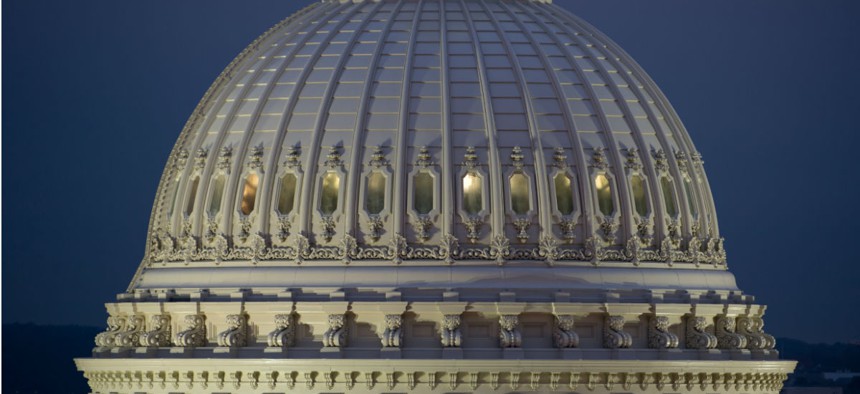
Architect of the Capitol
House Passes Third Major Deregulatory Bill
Regulatory Accountability Act would force agencies to choose cheaper versions of rules.
In its third major regulatory reform bill this month, the House on Wednesday passed the Regulatory Accountability Act (H.R. 5), designed to require rulemaking agencies to choose the lowest cost alternatives, freeze major promulgated rules if challenged in court, remove the judiciary’s “deference” to agency interpretations of statutes and better factor in the rules’ impacts on small businesses.
The largely party-line vote was 238-183.
It comes as part of a major push to roll back Obama administration regulations, which the Republican-led Congress has integrated into its larger agenda in anticipation of a more-sympathetic Trump administration.
The bill, favored by many large businesses but opposed by consumer and environment groups, was sponsored in the new 115th Congress by Judiciary Committee Chairman Bob Goodlatte, R-Va.
“The assembling Trump administration promises to wipe out abusive regulation, freeing Americans to innovate and prosper once more,” Goodlatte said on the House floor. “Today's legislation will give this new administration the tools. …It commands Washington bureaucrats to listen to the facts and ideas offered by the people and to follow them when they are better than the bureaucracy's own. It calls on regulatory agencies to achieve the benefits Congress has called on them through statutes to achieve. But it gives the people full opportunities to offer fresh alternatives for doing so and to vet with the agencies the facts and ideas that work and those that don't.”
Opposing the bill after unsuccessfully offering amendments were Democrats led by ranking Judiciary member John Conyers, D-Mich. “Under the guise of improving the regulatory process, H.R. 5 will, in truth, undermine that process and jeopardize the ability of government agencies to safeguard public health and safety, the environment, workplace safety, and consumer financial protections,” he said.
“For example, Title I of the bill would impose more than 70 new analytical requirements that will add years to the rulemaking process,” Conyers said. “Worse yet, many of these new requirements are intended to facilitate the ability of regulated entities--such as well-funded corporate interests--to intervene and derail regulatory protections they oppose.”
Democratic opposition was seconded by the Coalition for Sensible Safeguards, an alliance of progressive scientists and environmental groups, which argued that the bill would create dangerous uncertainty for businesses. “This bill has nothing to do with ‘accountability’ and everything to do with hobbling enforcement of landmark laws like the Clean Water Act, the Clean Air Act, the Occupational Safety and Health Act, and more,” said member Robert Verchick, president of the Center for Progressive Reform.
By contrast, the U.S. Chamber of Commerce applauded its passage, saying, “Our aging regulatory system is long overdue for an upgrade,” and this bill targets only the most expensive and burdensome rules that cut across industries and sector.”
Prospects in the Senate, where the party breakdown is more evenly divided, are uncertain given the detailed plans for regulatory reform already under discussion.







